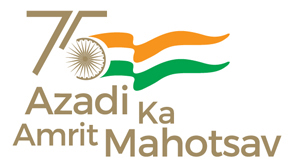Trainings and Workshops : 2023-2024
Inter-ministerial Workshop: Minimizing the Impact of Railways On Elephants and Other Wildlife for the Officials of Indian Railways held at WII on 23rd – 25th November 2023.
Recognizing the importance of collaborative multi prolonged efforts to minimized railway –related wildlife mortalities, the MoEF&CC in collaboration with the Ministry of Railways kick-started an inter-ministerial workshop at WII during February 2023. The workshop turned out to be an important platform for sharing mutual concerns and chalkout joint steps. As a sequel, the second inter-ministerial workshop was conducted during 23rd – 25th November 2023 at WII with field visits to the Rajaji Tiger Reserve in Uttarakhand. Nomination of field-level officers were received 9 zonal Railways primarily from the elephant range areas across India. A total of 18 serving Railway officers participated in the workshop. The officers that participated in the workshop came from diverse group of departments within Railways representing the signal and telecommunication, permanent way, construction, traffic, training, rail safety and others. The participants opined that the workshop provided them an opportunity for them to enhance and diversify their skill in managing the rail–elephant conflict situation.
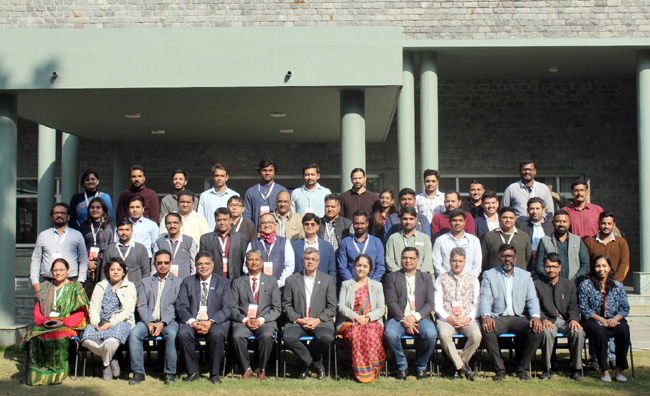
Consultative Workshop: Mainstreaming management of the Elephant Reserves for the Elephant Reserve Managers at Wildlife Institute of India on 28th – 29th November 2023.
This workshop was aimed at harmonizing management of Elephant Reserves by standardizing and incorporating elephant-specific management needs. It also aimed in bringing Elephant Reserve management across the country together to deliberate on range of topics relevant to elephant conservation and management including aspects of human-elephant conflict, population estimation, capture interventions, and the proposed framework for elephant conservation plans, emphasizing community involvement and importance of elephant corridors and the challenges of managing dispersing populations. 14 serving officers managing the Elephant Reserves in the States of Andhra Pradesh, Assam, Jharkhand, Chhattisgarh, Tamil Nadu, Uttar Pradesh and Uttarakhand participated in the workshop.
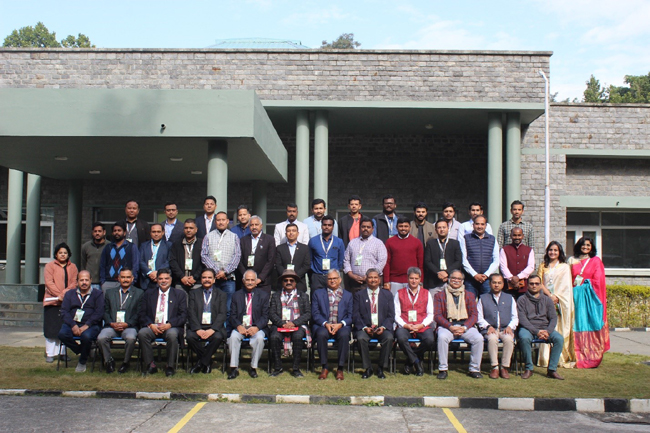
Inter-ministerial Workshop: Exploring solutions for minimizing electrocution risks and promoting wildlife safety across power infrastructure in India for the officials from the Ministry of Power and select Distribution Agencies, and Forest Officials at WII on 11th – 13th January 2024
Wildlife electrocution has emerged as one of the major challenges facing wildlife conservation in India. The threat of electrocution has increased substantially during the last few decades. Electrocution (and collision with power lines) forms the major conservation challenge for the critically endangered great Indian bustards – flagship species of the arid lands in India. Further, many charismatic large mammals like elephants, tigers and leopards are also routinely electrocuted. The MoEFCC and the State Forest Departments have initiated numerous strategies aimed at addressing electrocution-related threats on wildlife. In continuation to these measures, the MoEFCC embarked on an inter-ministerial consultative workshop aimed at bringing forest officials, wildlife scientists and officials from the power sector (including Ministry officials, power distribution companies) together to discuss the gamut of issues pertaining to wildlife electrocution and ways to means to address the same.
With this aim the inter-ministerial workshop was held at WII, Dehradun during 11-13 January 2024. A total of 40 participants attended the workshop. The attendees included senior forest officials (DCF and above) from the states of Odisha, Jharkhand, Uttarakhand, Madhya Pradesh, Tamilnadu, Kerala, Chhattisgarh, West Bengal, officials from the NTCA, Power grid corporation, Central Electricity Authority and from other state power distribution and transmission agencies. Overall, the workshop fostered cooperation, knowledge exchange, and practical strategies to protect India's diverse flora and fauna while meeting energy needs sustainably, marking a significant step in addressing the challenge of animal electrocution and laying the groundwork for collaborative conservation efforts nationwide.
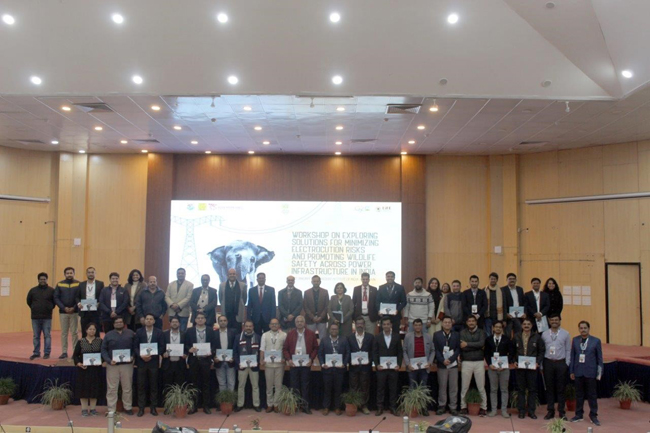
Inception/ Stakeholder Consultation Workshop on the 'Framework for the Preparation of Elephant Conservation Plan (ECP) for the elephant reserves' at Wildlife Institute of India, Dehradun on October 13th, 2023.
The workshop aimed to address the challenges of human-elephant conflict, safeguard Asian elephant populations, and achieve sustainable conservation. Key points include the importance of ecological protection, restoration measures, stakeholder engagement, and the need for greater cooperation and financial support for elephant conservation. The document highlights the establishment of a core team, discussions on the ECP framework, conservation philosophy, planning processes, and group discussions on key chapters, including the involvement of stakeholders, corridor monitoring, genetic research, and financial planning. The workshop emphasized the need for a comprehensive approach considering ecological, socioeconomic, and cultural aspects to ensure the long-term viability of Asian elephant populations.
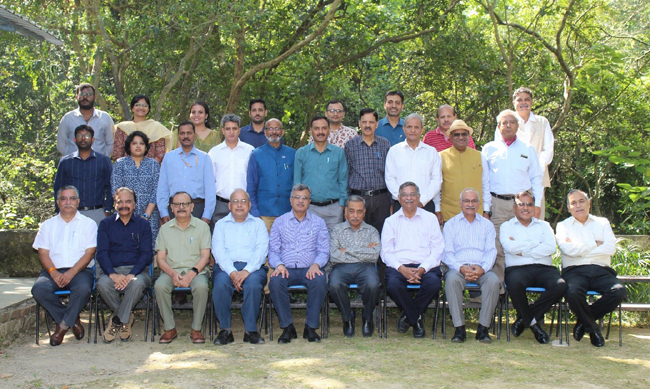
Consultative Workshop on Finalization of the ‘Framework for the Preparation of Elephant Conservation Plan (ECP)’ at Wildlife Institute of India, Dehradun on February 6th, 2024.
The workshop aimed to refine the Elephant Conservation Plan (ECP) draft. Noteworthy contributions from Shri. V. B. Sawarkar and Shri. S. S. Bist emphasized data utilization and regional challenges, enriching the discourse. Recommendations emerged to streamline the ecp's introduction, focusing on elephant ecology and incorporating zonation concepts. Working groups proposed measures for human-elephant conflict (HEC) mitigation, ecological sustainability, and administrative reforms. Suggestions included stakeholder engagement, innovative HEC solutions, and enhancing wildlife veterinary capabilities. Transparency in institutional reputations and database management across management units were underscored. The workshop advocated for a comprehensive "Elephant conservation book" for site-specific data. Overall, it served as a crucial platform for refining the ECP, ensuring effective conservation strategies, and fostering administrative coherence for elephant reserves, thereby advancing holistic approaches to elephant conservation.
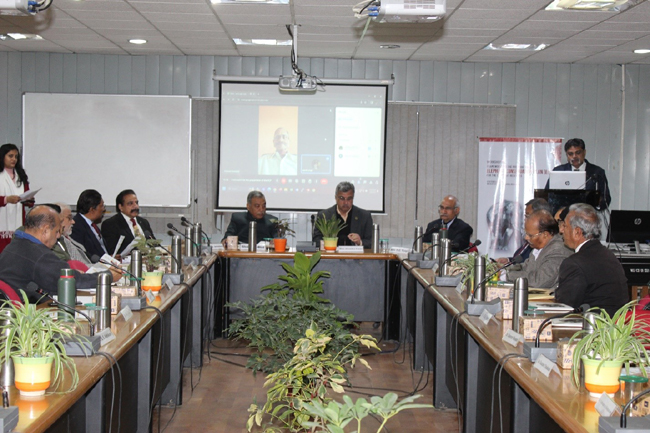
Last Updated: May 14, 2024

